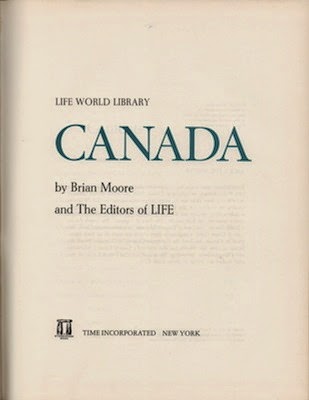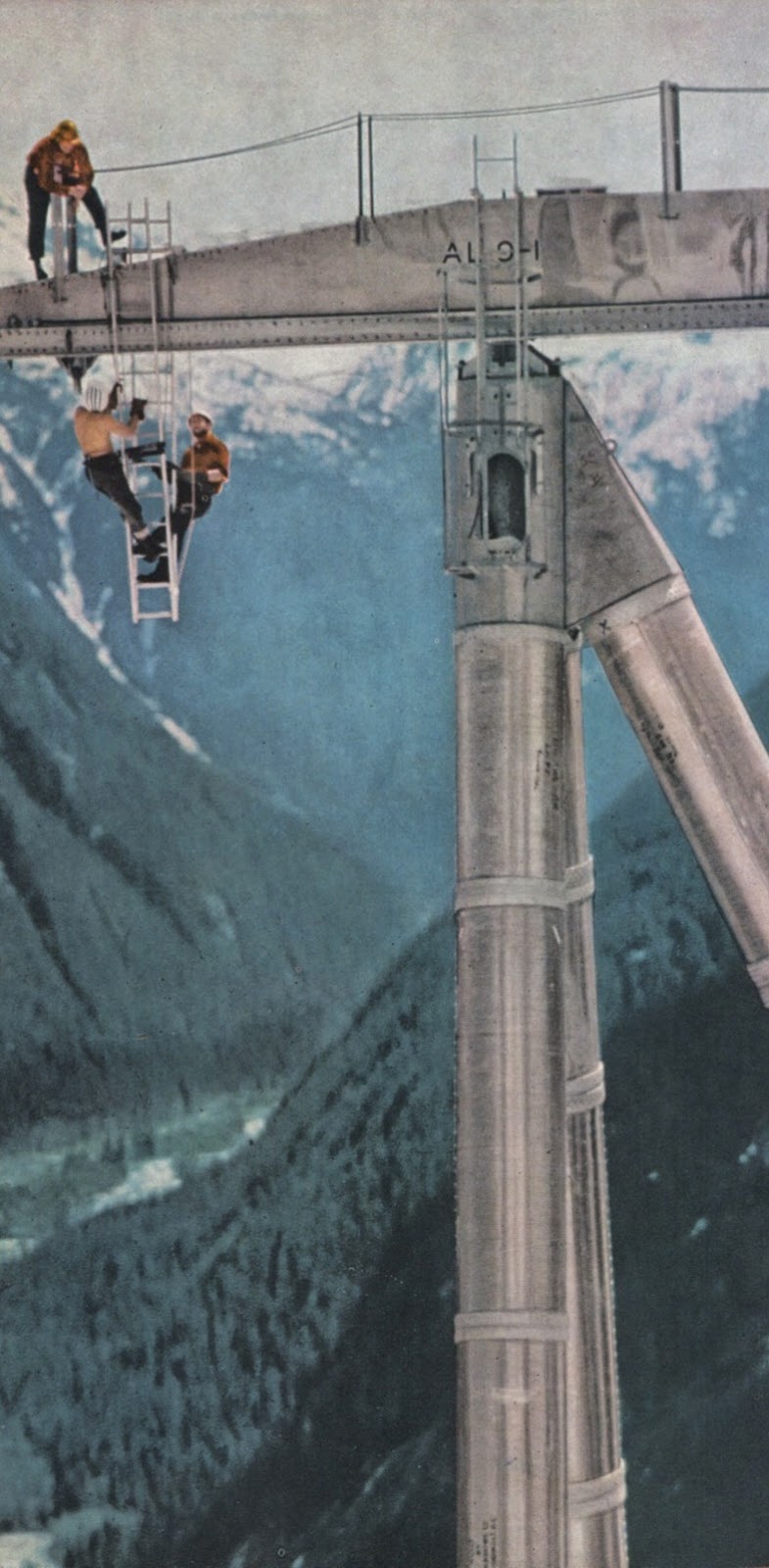Re-entry
John Wesley White
Minneapolis: Word Wide Publications, [1971?]
Just how easy is it to obtain a PhD from Oxford? The question grows with each John Wesley White book read.
Re-entry follows
Arming for Armageddon and
Thinking the Unthinkable as my third. Mine is a scattershot approach: I read 'em as I find 'em. Like the others,
Re-entry was found in a Salvation army Thrift Store. Price: 75¢.
In his Foreword, friend Billy Graham plays up John Wesley White's education: Moody Bible Institute (Chicago), Wheaton College (Wheaton), Queen's University (Belfast), Trinity College (Dublin) and, of course, Oxford University (Oxford), at which that Doctor of Philosophy degree was earned. When
Re-entry was published, Dr White held the position of Chancellor at Toronto's Richmond College. An institution known today as Canada Christian College, it's currently headed by Charles McVety, Canada's leading homophobe. Wife Jennifer is Registrar.
When writing about
Arming for Armageddon and
Thinking the Unthinkable, I made much – but not too much – of Dr White's multitudinous mistakes. Fast and furious, they come early in
Re-entry, beginning on the very first page. Here the reader finds a warm, brotherly attack on James Pike, the popular Episcopal bishop who had died of a fall in the Judean Desert not two years earlier. Writes Dr White: "As the press put it, he was literally going through 'torments trying to find himself and failed.'"
The words the doctor quotes do indeed come from the press – the Associated Press, anyway – but they're in reference to the bishop's eldest son, who had taken his own life at the age of twenty-two.
Was James Pike tormented? I can't imagine anyone recovering from the death of a child. However, Dr White disregards the loss, pointing instead to the bishop's inquisitive nature as evidence of torment, then misrepresents the man's words: "An ironic postscript to James Pike's disavowal of the second coming was provided by the
Time cover story of June 21, 1971, entitled 'Jesus Is Coming.'"
Bishop Pike did not disavow the second coming. The issue of
Time Dr White cites featured two cover stories: "The Alternative Jesus: Psychedelic Christ" and "Religion: Many Things to Many Men". The cover tag was "THE JESUS REVOLUTION".
There is no article titled "Jesus Is Coming."
That reference to the June 21, 1971 edition of
Time is the closest I've seen to an actual citation in any of the doctors's writing read thus far.
Re-entry quotes content published in ten magazines, fourteen newspapers,one supermarket tabloid, and a mystery publication identified only as "
McLean's", without mention of issue, edition, author or title. There are no footnotes and endnotes, though a Scripture Index does follow.
He can be more vague, more unreliable:
When I was in Africa, I read in a newspaper of a London school in which 5-to-7-year-olds were completely out of hand.
How out of hand?
"Razor blade slashings and hangings were reported."
Oh, those 5-to-7-year-olds.
I don't mean to imply that the good doctor is a drunk, but there are times when his words remind me of an opinionated barfly. He's read something somewhere… or maybe someone told him something once… anyway, he knows what's going on:
A school principal tells me that in one of the community colleges in Ontario, in the literature department, Playboy has become the official textbook!
Name the subject, John Wesley White is Canada's Cliff Clavin.
Publishing: "Science fiction is going out of style because science is revealing so much that once could be thought of only as fiction."
Seismology: "A Presbyterian minister tells me that there are annually 18,000 earthquakes of a size large enough to be classified as such."
Aviation: "…the Wright Brothers first test flew an aircraft in California in 1904."
Physics: "…those who turned and looked back at the Nagasaki conflagration, turned into ash. Inexplicably, others with them who fled with their coats over their heads escaped untarnished."
Education: "Student activists in California form a denomination of devil-worshippers, leaders of which are 'Satan's Ministers who put on 'devil's horn's' and conduct services including nationally televised wedding ceremonies."
Dr White writes of a monster named "Adolph Hitler", the film star "Sydney Poitier", Broadway's "Melba Moone", and "Dennis Morse", a highly successful, jetsetting film star who has somehow escaped the attention of IMDb.
"The moral depravity which Scriptures indicate God hates most is sexual deviation and perversion, including homosexuality and lesbianism", writes Dr White.
This is not to say that the good doctor doesn't recognize the limits of his knowledge:
Many people ask: "Is there an intimation of television in the Bible?" I do not know. But for centuries and perhaps especially since such books as Professor Urey's (the Nobel Prize winner) Red Lights of the Apocalypse appeared, fascination has centred on Revelation 11.
To be honest, I've never heard a soul ask about television in the Bible, nor do I know anyone who is fascinated by Revelation 11. Could be I'm running around with the wrong crowd. What I do know is that the Harold Urey, winner of the 1934 Nobel Prize in Chemistry, never published a book entitled
Red Lights of the Apocalypse.
Dr White does make mistakes.
There is a very definite rhythm to
Re-entry. The author will quote scripture, ramble on for a paragraph or two about, say, the Soviet Union's "hovering space bombs", then finish with "we can be sure that nothing else will remedy this situation but the second coming of Jesus Christ."
The message is simple: There's nothing you can do. Prepare for His coming by saving yourself. Affix your own oxygen mask – pay no mind to the passenger next to you. Proselytize.
Dr White has yet to win me over, but I'm always interested in what he has to say. More than anything, I enjoy his writing on entertainment and the arts, which have had me thinking of the insidious anti-Christian elements of
I Married a Monster from Outer Space and
Laurie Anderson's "O Superman". "
Where in
Arming for Armageddon and
Thinking the Unthinkable, condemnation of film and music were often on the menu, here I was surprised to find a mouthful and more about "the clever but sinister portrayal of human hate, sadism and cruelty which pour forth from the pens of playwrights whose minds are grotesquely depraved and twisted." According to the doctor, their output includes "a rash of plays on nudity such as 'Hair,' 'Man's Eyes,' 'The Beard,' and 'Canada's Fortune.'"
Sure, productions of
Hair and
The Beard have featured the unclothed, but the idea that they are "on nudity" has me reconsidering my understanding. As for
Man's Eyes and
Canada's Fortune, I'm guessing he really means
Fortune and Men's Eyes by Canada's John Herbert.
Again, Dr White does make mistakes.
I see no evidence that the films
In the Heat of the Night and
Bunny O'Hare incited violence; and judging from the trailer,
The Day the Earth Caught Fire isn't about "the terrifying and magnificent aspects of future activity in space."
Brian Jones didn't kill himself. Paul McCartney, John Lennon and Yoko Ono did not "appear in the nude on the cover of a Beatle record". I can find no trace of a Smothers Brothers song titled "What Do You Do, When There's No Place to Hide!", but do thank Dr White for
again introducing me to songs that had somehow escaped my attention:
The late Elizabeth Steen, a 28-year-old Richmond, California housewife brought thousands of her fellow Californians to a state of near panic by predicting that on April 14, 1969, a series of catastrophic earthquakes would destroy the coastal area of California. Kooks, cultists and hippies gave the portent maxim mileage with a rash of pop songs like "Where Can We Go When There's No San Francisco" and "California Earthquake."
I'd never heard Cass Elliot's "California Earthquake", which reached #67 on the Billboard Top 100. "Talkin' to Your Toothbrush" was the b-side.
"Where Can We Go When There's No San Francisco" is actually "Day by Day (It's Slippin' Away)" by some band called Shango (featuring Tommy Reynold's, later of Hamilton, Joe Frank & Reynolds!). It made number 57.
Frankly, I see both songs as tearing a strip of off the doomsday kooks and cultists. Maybe it's just me.
Like scripture, all rests on interpretation.
Best passage:
The second coming is good news. For ours is an anguished age, as it is angry. It is both ironic and paradoxical that man should be ripping in half as he is being catapulted upward, slingshot into space by a sophisticated scientism, while he is being savagely sucked from beneath by the woes of warism, the stalking suffocation of pollution, proliferating poverty, raging racism and the ultimate weaponry which beckons impending annihilation. Schizophrenically-split through the middle, he years to get glued together again. So he snatches at any straw of hope.
Object: A 192-page mass market paperback, my copy is an updated "Special Crusade Edition", flogged to television viewers by Billy Graham's own World Wide Publications.
Access: The first edition (right) was published in 1970 by Zondervan.
Re-entry enjoyed several printings, the last being in 1975. That same year Dr White published a book titled
Re-entry II. What's that all about? I don't know, If I come across a copy at the Salvation Army I'll let you know.
Nearly two hundred copies of
Re-entry – in it's various incarnations – are listed for sale online. A signed copy will set you back US$2.50. An optimistic American bookseller is selling a Fine first edition for US$20. Good luck to him.
Where WorldCat lists 177 copies in American libraries, we Canadians have to make do with two (University of Toronto Trinity College Library and Tyndale University College and Seminary Library).
Related posts:




























































